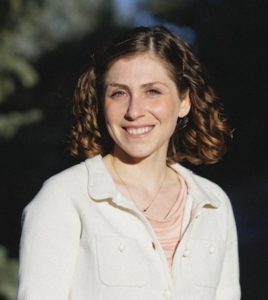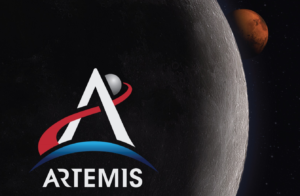 The Artemis program is NASA’s return to the moon. The goal is to land the first woman and the next man, as well as a person of color, to the moon by 2025. The target is the lunar south pole, where water ice resides in abundance. NASA will harness the talents and capabilities of private industry, academia, and our international partners to build a sustainable presence on the moon. While living and working on the Moon, we will develop the skills, knowledge, and technologies necessary for a Mars landing in the next few decades.
The Artemis program is NASA’s return to the moon. The goal is to land the first woman and the next man, as well as a person of color, to the moon by 2025. The target is the lunar south pole, where water ice resides in abundance. NASA will harness the talents and capabilities of private industry, academia, and our international partners to build a sustainable presence on the moon. While living and working on the Moon, we will develop the skills, knowledge, and technologies necessary for a Mars landing in the next few decades.
Artemis 1, an unmanned test of the Orion crew module, Space Launch System (SLS). and Exploration Ground Systems at Cape Kennedy will launch in the spring of 2022.
Join us at the Patterson Observatory to watch the launch. We’ll announce the date and time when the launch date is set.
Visit https://www.nasa.gov/artemisprogram for more information.

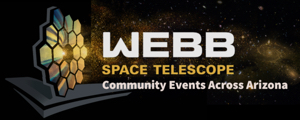
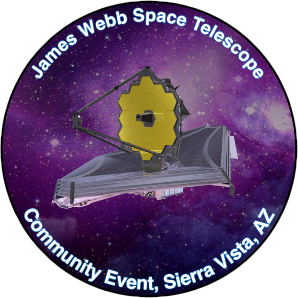
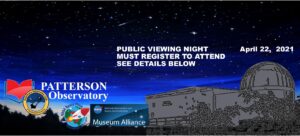

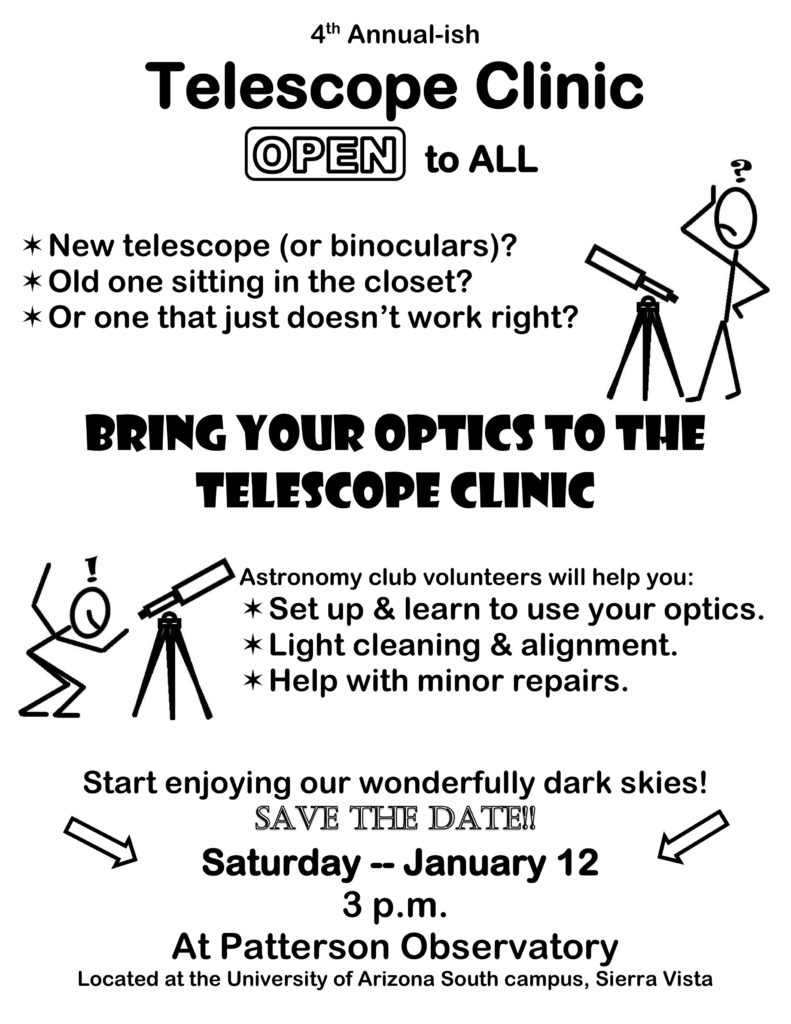
 A talk by Dr. Seth Shostak on Monday November 5, at 7 PM in the Student Union at Cochise College 901 N. Colombo Avenue, Sierra Vista.
A talk by Dr. Seth Shostak on Monday November 5, at 7 PM in the Student Union at Cochise College 901 N. Colombo Avenue, Sierra Vista.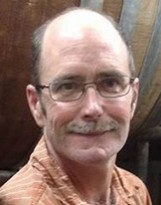 Our next meeting is October 12th at 7PM in the Student Union building on the Cochise College campus. At this meeting, Dr. Eric Pearce will give his presentation on “Space Situational Awareness.” He will discuss how the network of telescopes and radar systems to keep track of the satellites and other manmade objects currently in orbit around the Earth was developed and what purpose it serves.
Our next meeting is October 12th at 7PM in the Student Union building on the Cochise College campus. At this meeting, Dr. Eric Pearce will give his presentation on “Space Situational Awareness.” He will discuss how the network of telescopes and radar systems to keep track of the satellites and other manmade objects currently in orbit around the Earth was developed and what purpose it serves.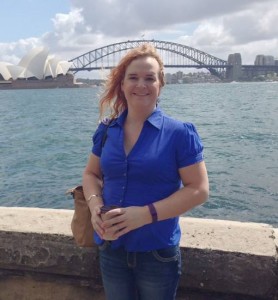 Dr. Danielle Adams, a recent graduate from the School of Middle Eastern and North African Studies at the University of Arizona and NASA Space Grant fellow, will speak about the rich star lore of Arabia as it was more than a thousand years ago. Camels, vultures, goats, wild cows and many other kinds of animals graced the skies of the Arabian desert, and some of these survive in the star names used by astronomers today. Danielle will especially focus on the stars that are visible in the fall so that visitors can find them after the talk in the park’s famously dark sky. Some of these stories can be found on her website,
Dr. Danielle Adams, a recent graduate from the School of Middle Eastern and North African Studies at the University of Arizona and NASA Space Grant fellow, will speak about the rich star lore of Arabia as it was more than a thousand years ago. Camels, vultures, goats, wild cows and many other kinds of animals graced the skies of the Arabian desert, and some of these survive in the star names used by astronomers today. Danielle will especially focus on the stars that are visible in the fall so that visitors can find them after the talk in the park’s famously dark sky. Some of these stories can be found on her website, 